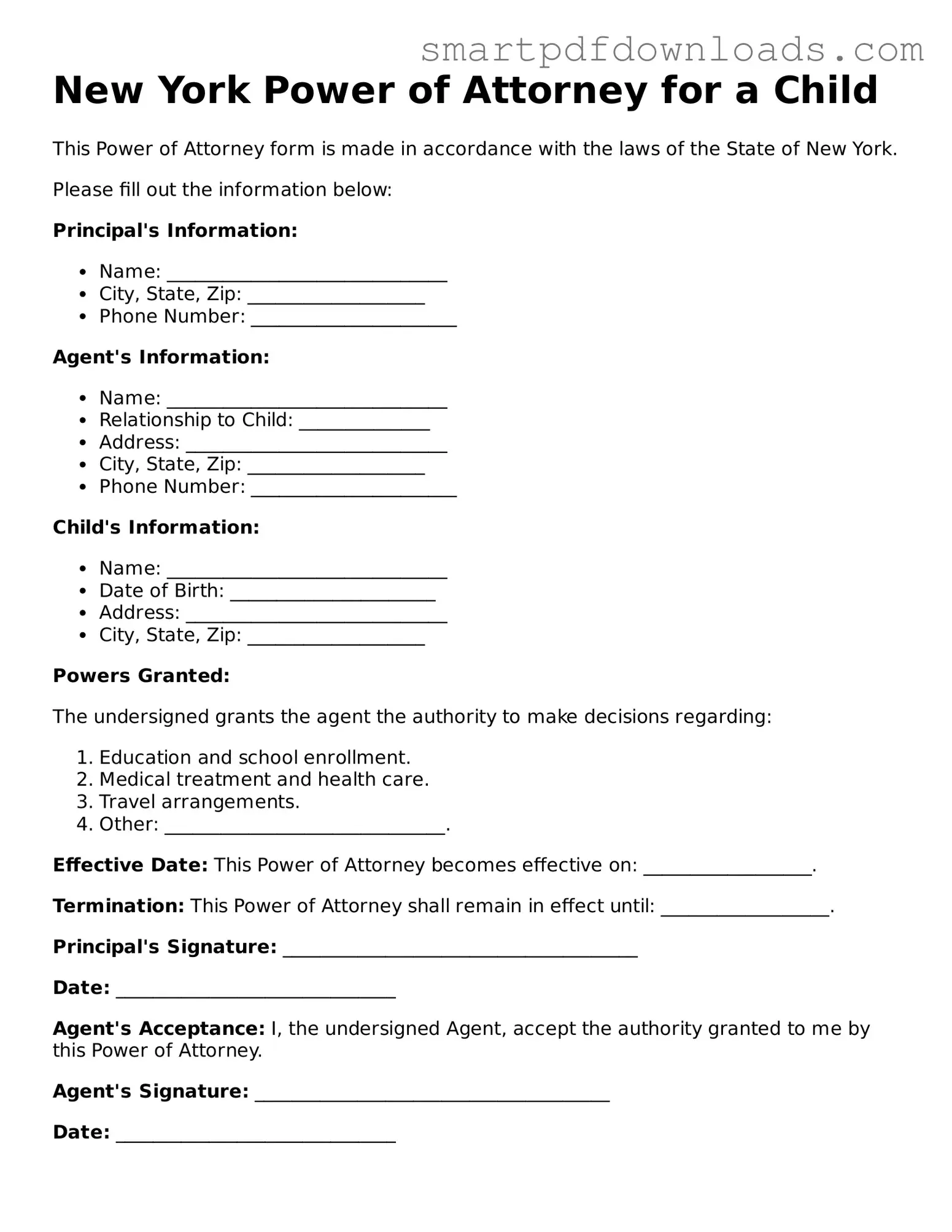Legal Power of Attorney for a Child Form for the State of New York
The New York Power of Attorney for a Child form is a legal document that allows a parent or guardian to designate another adult to make decisions on behalf of their child. This form is particularly useful in situations where the parent or guardian cannot be present to provide care or make decisions. By using this form, parents can ensure their child's needs are met while they are away.
Edit Power of Attorney for a Child Online

Legal Power of Attorney for a Child Form for the State of New York
Edit Power of Attorney for a Child Online

Edit Power of Attorney for a Child Online
or
⇓ PDF File
Finish the form and move on
Edit Power of Attorney for a Child online fast, without printing.